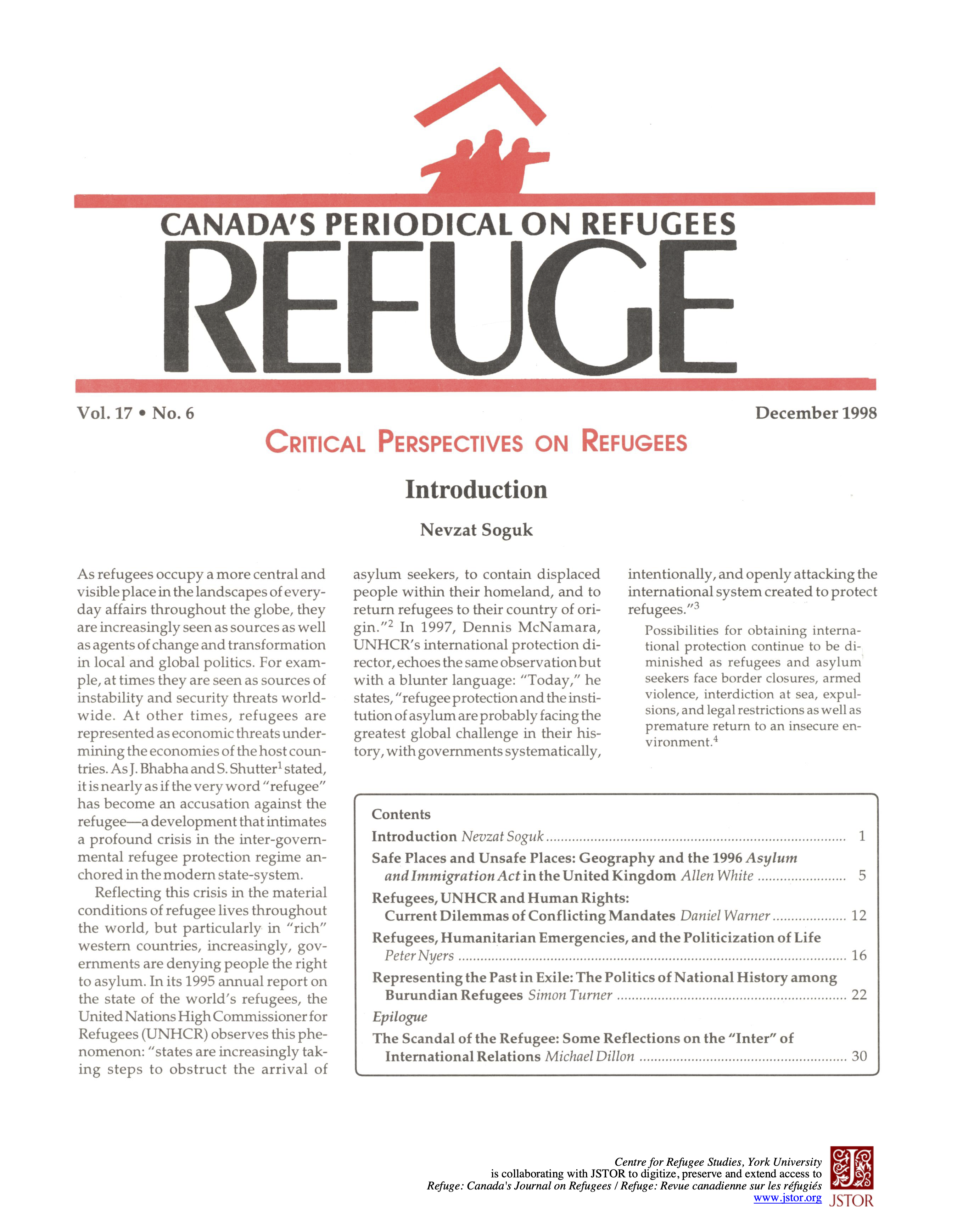Representing the Past in Exile: The Politics of National History among Burundian Refugees
DOI:
https://doi.org/10.25071/1920-7336.21997Keywords:
Tanzania, Burundi, Hutu refugees, refugee camp, discourse, narratives, ethnicity, political movements, mythico-historyAbstract
Life in a refugee camp often brings about the need for explanations among its inhabitants, and historical narratives attempt to supply the answers. But these narratives change over time and several narratives can exist in the same refugee camp simultaneously. This paper argues that the production of historical narratives is closely related to the dominant political ideologies in the camps. It argues that in order to understand the changes in representations of the past in the camps, one must analyze the changes in political movements among the Hutu opposition. It shows how the dominant discourse on ethnicity in Burundi has changed since the early 1980s and how this has forced the Hutu oppsition to reformulate its demands. Finally, it contends that regional developments, such as the genocide in Rwanda, have also been influential in the general shift from an essentialist to a pluralist discourse among Burundian Hutu in exile. It concludes that ideological formations among refugees in camps are in no ways isolated from the outside world.
Metrics
Downloads
Published
How to Cite
Issue
Section
License
Copyright (c) 1998 Simon Turner

This work is licensed under a Creative Commons Attribution-NonCommercial 4.0 International License.
Refuge authors retain the copyright over their work, and license it to the general public under the Creative Commons Attribution-Non Commercial License International (CC BY-NC 4.0). This license allows for non-commercial use, reproduction and adaption of the material in any medium or format, with proper attribution. For general information on Creative Commons licences, visit the Creative Commons site. For the CC BY-NC 4.0 license, review the human readable summary.







